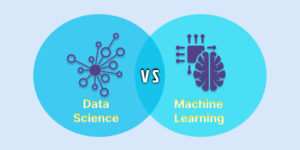
Already, technology had gone mainstream, and the coronavirus outbreak had altered the way businesses used to operate. With more and more organizations going online, there will be a huge demand for technically savvy professionals. There are numerous best career options for the next ten years to choose from; here are our 8 top picks for you.
Take a look…
Table of Content
| Software Developer Data Scientist Data Analyst Blockchain Developer Artificial Intelligence and Machine Learning Expert Cloud Engineer Cyber Security Expert Big Data Engineer Conclusion |
1. SOFTWARE DEVELOPER

The field of software development has gained immense popularity in the past few years. And the outbreak of the coronavirus pandemic has made it one of the most popular in-demand tech career options. As more businesses shift to digital platforms and rely on digital products, the demand for software developers rises in lockstep.
Software developers are the ones who are responsible for the development and programming of a software product. More often than not, they work in groups or teams. Software developers must possess solid problem-solving skills in order to resolve any issues that arise during development. Besides, a software developer must possess strong communication and collaboration skills along with strong technical skills. Since they work in teams, they require to share ideas and communicate with their colleagues.
Skill Required To Be A Software Developer: Python, C++, Databases, Java, and many more.
Educational Requirements Become A Software Developer: Usually, software developers have a bachelor’s degree in computer science and strong computer programming skills. However, you can enroll yourself in a software development course in any reputable institute, where you can learn all of the necessary skills required to become a software developer.
Non-Technical Skills To Be Software Developer: Good communication skills and ability to work in a team, along with the willingness to update your skills constantly. Because the software industry is constantly evolving, they must update their skills to keep up with the industry’s demand.
Companies/Industries Software Developers Work in: Software developers can work in almost all the sectors or companies, including Technology consultancies, Retail, Financial services sector, Banking, Software development companies, Telecommunications sector, Public sector organizations, Research and development, Healthcare services, Business and IT services, Government sector, Defense, and so on.
The Average Salary Of Software Developers: The average salary for a system software developer is $7,951.19. With no or little experience, an entry-level system software developer can earn around $6,203.34 per year. Early-career system software developers with 1 to 4 years of experience can expect to earn about $7,171.20 per year.
2. DATA SCIENTIST

Data Scientist is another prominent career path for the next ten years. Data Science has grown in popularity in recent years. The amount of data that businesses and their customers use has grown exponentially. Employers now seek expert data scientists to use that data for the growth of the organization effectively.
Data scientists are the ones responsible for identifying the best data analytics solutions for their organization. To complete their tasks, they must use deep learning, machine learning, and other related technologies. Data scientists cannot function alone; they work in teams. They need to collaborate with different verticals to develop strategies, create better products, launch more effective campaigns, and create data pipelines and improve workflow.
Given the increase in demand for data scientists over the last few years, it is expected to see an immense upsurge in the future, making it one of the best career options for the next ten years.
Technical Skill Required To Be A Data Scientist: Python Coding, Hadoop Platform, SQL Database/Coding, Apache Spark, Machine Learning and AI, Data Visualization, and many more.
Educational Requirements To Become A Software Developer: You will need to enroll in a reputable institute to learn and understand the concepts of data science. Research indicates, 88% have at least a Master’s degree, and 46% have PhDs. This means you’ll need to have a strong educational background.
Non-Technical Skills To Be A Data Scientist: Good communication skills, knowledge of business acumen, curiosity to learn and upgrade, and teamwork abilities.
Companies/Industries Data Scientists Work in: Data scientists are employed in almost every industry, including eCommerce, startups, research organizations, marketing agencies, and so on.
The Average Salary Of Data Scientist: The average starting salary for a data scientist is $95,000. A mid-level data scientist earns an average of $130,000. Experienced data science professionals earn a median salary of $165,000, while experienced manager-level professionals earn $250,000.
RELATED: 10 Top Internet of Things (IoT) Certifications to Boost your Career
3. DATA ANALYST

While data scientists analyze data and use it to develop solutions, there are specialists who can make data understandable to everyone. Data analysts work in this capacity. A data analyst is in charge of making complex data and insights understandable to a broad audience.
Aspirants good at maths and statistics can think of this as a career path. Aside from those subjects, this position necessitates proficiency in a variety of programming languages, including Python and SQL. Data Science is the most coveted industry today, despite it being still a fairly new concept. Undeniably, it is going to be one of the most secure career options for the next ten years, even more.
Technical Skill Required To Be A Data Analyst: Structured Query Language (SQL), Microsoft Excel, R or Python-Statistical Programming, Data Visualization, Machine Learning, and many more.
Educational Requirements To Become A Data Analyst: Although a bachelor’s degree is the most common entry-level qualification, some employers prefer candidates with a master’s degree in data analytics or a related field. A bachelor’s degree in an area that involves statistical and analytical skills, such as math or computer science, is required. You will also need to learn essential data analytics skills along with a business analytics certification.
Non-Technical Skills To Be A Data Analyst: Good communication skills, Presentation Skills, Critical Thinking, curiosity to learn and upgrade, and teamwork abilities.
Companies/Industries Data Analyst Work in: Data scientist is employed in almost every industry, including eCommerce, startups, research organizations, financial firms, and so on.
The Average Salary Of Data Analyst: A data analyst’s annual salary can range from approximately $60,000 to $138,000. Positions at financial and technology firms tend to pay more than the average.
4. BLOCKCHAIN DEVELOPER

Bitcoin has lately received a lot of attention for providing significant returns to its users. It is a cryptocurrency that is built on the blockchain. Because of their unique and practical potential, blockchain-based technologies are expected to revolutionize various industries.
Blockchain developers make secure digital transactions possible by developing systems to record and store blockchain data in such a way that prevents alterations or hacks. They build application features and interfaces, as well as client and server-side applications, and design secure blockchain technologies. The demand for blockchain skills has recently increased tremendously, and blockchain developers earn 50-100 percent more than traditional development roles.
There are two types of roles you can choose from, Blockchain software developer and Core blockchain developer.
Technical Skill Required To Be A Blockchain Developer: Cryptography, Smart Contracts, Data Structures, C++, Java, Python, and many more.
Educational Requirements To Become A Blockchain Developer: Blockchain is a complex subject that necessitates a wide range of skills, including cryptography, programming, and so on. You can become a blockchain developer by enrolling in a blockchain course that covers all of the necessary topics as well as the industry’s in-demand skills.
Non-Technical Skills To Be A Blockchain Developer: Good communication skills, Critical Thinking, curiosity to learn and upgrade, and teamwork abilities.
Companies/Industries Blockchain Developer Work in: Industries, such as banks, accountancy firms, oil & gas, insurance, retailer, tech firms, startups, government organizations, etc., hire blockchain developers to help them prepare for the dynamic needs of the future.
The Average Salary Of Blockchain Developer: A Blockchain Developer’s salary in India typically ranges between $6,744.41 PA and $40,466.46. As is obvious, the more experience you have and the more profound your skillset, the higher your annual salary will be.
5. ARTIFICIAL INTELLIGENCE AND MACHINE LEARNING EXPERT

Like Artificial Intelligence and Machine Learning, AI and ML experts are in the mainstream today and are expected to grow in the future. Despite the high demand for such professionals, there is a severe shortage of skilled and talented AI/ML experts. This means now is the best time to learn this skill. Furthermore, research indicates that AI and ML are among the best career options for the next ten years.
Technical Skill Required To Be An AI and ML Expert: Programming languages, such as Python, C++, JavaScript, Java, C#, Julia, Shell, R, TypeScript, and Scala. Besides, you need to learn Data engineering, Exploratory data analysis, etc.
Educational Requirements To Become An AI and ML Expert: To become an AI or ML expert, you must first master programming, logic, and a variety of computer science concepts. You can improve your chances of landing this position by enrolling in a postgraduate course in Artificial Intelligence and Machine Learning. It would enable you to stand out from the crowd and quickly advance in your career.
Non-Technical Skills To Be An AI and ML Expert: Good communication skills, Problem-solving skills, Domain knowledge, Time management, Teamwork, and Thirst for learning.
Companies/Industries An AI and ML Expert Work in: Manufacturing, Professional, Scientific, and Technical Services, Finance and Insurance, Information Technology, Educational Services, Health Care and Social Assistance, and many more
The Average Salary Of An AI and ML Expert: The average salary for someone with 0-4 years of experience is around $97,090. However, with potential bonuses and profit-sharing, that figure could quickly rise to $130,000 or higher. Mid-level machine learning engineers with around 5-9 years of experience earn between $112,095 and $160,000 per year, while senior machine learning engineers with 10+ years of experience earn between $132,500 and $181,000 per year.
6. CLOUD ENGINEER

Cloud technology assists businesses in lowering operating costs and becoming more efficient. Besides, it promotes collaboration and productivity. As a result, an increasing number of companies are implementing cloud technology. Cloud computing professionals are in high demand, and it is one of the best career options for the next ten years.
Research indicates that there will be an upsurge in cloud computing jobs. The coronavirus pandemic has tremendously increased the demand for cloud software. Interested candidates can pursue an engineering degree with a focus on cloud computing. Besides, they can also pursue a postgraduate degree in cloud computing to have a promising career. It is going to be beneficial in the long run.
Technical Skill Required To Be A Cloud Engineer: Cloud engineers are required to have knowledge of HTML and computing fundamentals. Besides, they should be familiar with terms like ROI, marketing strategies, and business plans and should know how to handle massive amounts of data and make the best use of ERP systems.
Educational Requirements To Become A Cloud Engineer: The first and foremost step toward becoming a cloud engineer is to know at least one of the three major cloud computing platforms—AWS, Azure, or Google Cloud Platform (GCP). There are numerous resources available on the internet to help you gain a basic understanding. After that, you can pursue certification in any of the relevant environments.
Non-Technical Skills To Be A Cloud Engineer: Communication skills, Project management, Business skills, Teamwork abilities, Legal acumen, etc.
Companies/Industries Cloud Engineers Work in: Retail, IT, Banking, Manufacturing, etc.
The Average Salary Of A Cloud Engineer: Cloud computing engineers are well compensated. A cloud computing engineer earns approximately $116,800 per year in the United States and approximately INR 6,66,800 in India. And as you gain experience in the field of cloud computing, your salary will automatically increase.
7. CYBER SECURITY EXPERT

India had the highest number of cyber-attacks in July 2020, with 4.5 million. In February 2021, nearly a year after the pandemic began, there were 377.5 million brute-force attacks, quite a cry from the 93.1 million seen at the start of 2020. In February 2021, India alone saw 9.04 million attacks. The threat posed by
cybercriminals and organizations is growing in tandem with society’s digitization. Companies and organizations worldwide rely on cyber security experts to assist them in dealing with cybercrimes.
Cyber security experts consult with businesses to help them understand potential cyber threats. Furthermore, they help them strengthen their cyber security implementations so that they can combat hackers and malware.
Furthermore, cyber security experts assist in training an organization’s staff to adhere to best security practices. The demand for cyber security professionals is constantly increasing, and if you enjoy helping others, it is unquestionably an excellent career path for you.
Technical Skill Required To Be A Cyber Security Expert: Computer Forensics Skills, Problem Solving Skills, Technical Aptitude, etc.
Educational Requirements To Become A Cyber Security Expert: A degree in computer science or related subjects, such as BE or B.Tech in Computer Science, BSc. in Computer Science, etc., or a PG Diploma in Software Development Specialisation in Cyber Security, is required to become a cybersecurity expert.
Non-Technical Skills To Be A Cyber Security Expert: Teamwork Abilities, Communication skills, Desire to learn, etc.
Companies/Industries Cyber Security Experts Work in: Due to increased cases of cybercrimes in almost all the sectors, the demand for cyber security experts is high. They are eligible to work in almost all the industries, including Health, Retail, IT, Banking, Manufacturing, etc.
The Average Salary Of A Cyber Security Expert: The average cyber security salary for this position ranges from $90,000 to $160,000, and it is well worth it.
8. BIG DATA ENGINEER

Finally, there are big data engineers. It is one of the most promising career paths for the next ten years. We generate enormous amounts of data every day. Big data engineers are needed in organizations to manage that data. Big data engineers create and manage their company’s data tools and infrastructure. They are in charge of gathering, processing, storing, and analyzing data. This position is suitable for candidates who are proficient in math, statistics and have strong problem-solving abilities.
Technical Skill Required To Be A Big Data Engineer: To be successful in their careers, big data engineers must be familiar with various programming languages (such as Java, Python, Scala, SQL), database skills, and data processing tools (such as Apache Hadoop, Apache Spark, Apache Kafka).
Educational Requirements To Become A Big Data Engineer: Big data engineers are usually computer science and programming experts. However, you don’t need to have a background in computer science to work in this field. You can even enroll yourself in a reputable institute to get PG Certification in Big Data Engineering.
Non-Technical Skills To Be A Big Data Engineer: Teamwork Abilities, Strong communication skills, Deduction skills, Desire to learn, etc.
Companies/Industries Big Data Engineer Work in: Due to the increased demand for big data engineers, more and more companies are hiring big data engineers. They are eligible to work in almost all industries, including Retail, IT, Banking, Manufacturing, etc.
The Average Salary Of A Big Data Engineer: The average annual salary for a data engineer in India is more than $830K. Many of the country’s data engineering jobs are based in Bangalore, where companies such as Amazon, IBM, and Adani hire for this position. In the US, the average data engineer salary is $116,591. This figure, however, varies greatly depending on the state and level of experience.
Conclusion…
So there you have it: the 8 best career options for the next ten years that you can consider to grow in life. Remember, it is imperative to pick the right career path, as it plays a key role and significantly impacts your life. Industry trends have changed tremendously in the last few years; jobs in demand in the past no longer exist now. That is why it is critical to stay informed and up to date on current trends. Doing so will assist you in making an informed career choice.
Hopefully, this article will assist you in determining the best career path for you. Also, if you have any suggestions, please leave them in the comments section below. We’d love to have your valuable advice!






